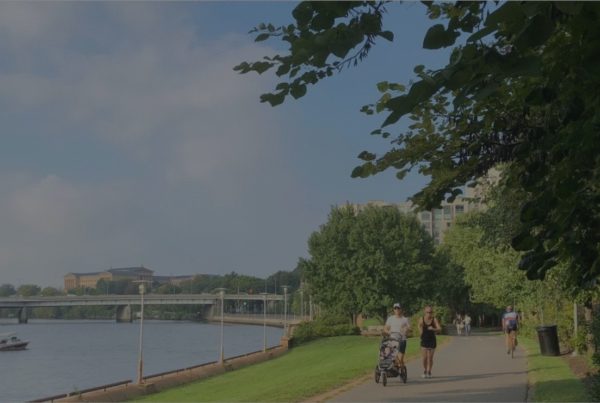By Bob Mionske
Posted Sep. 18, 2003
Dear Bob,(
Last week, a city commissioner in our town was quoted as saying that “there is no constitutional right for bicycles to use the streets of this city—cyclists may ride only at the pleasure of government.” Is he right, or is he just blowing smoke?(
P.H.,(Kentucky
Dear P.H.;(
Constitutional law is the playground of law professors, not humble bicycle lawyers. Understanding the typical U. S. Supreme Court decision is about as easy as reading Latin backwards, and usually makes about as much sense.The most common deskbook for municipal lawyers says that while “reasonable municipal regulations for the public safety may be made concerning the use of streets by bicycles, it has been held that an ordinance which attempts to prevent bicyclists from using that part of a street which is devoted to the use of vehicles is void as against a common right.” But is this just tradition, or is there an established Constitutional rightto use the road?
In a 2003 case, Janan Toma and a companion were cited by the police of a suburb of Houston for riding in the roadway. The village had a “mandatory sidepath” law on the books, but signs on each of the roads entering the town read:
BICYCLES ON
ROADWAYS
PROHIBITED
Since Texas state law defines sidewalks as part of the roadway, Toma argued that the signs effectively banned bicycling in the entire village, violating her constitutional right of travel. The judge disagreed, ruling that the Constitution protected only interstate travel, and that a law impinging on travel within one town does not affect movement between states.
The right of free travel is one of the oddest provisions of the United States Constitution. First, while everyone agrees there is such a thing, nobody can actually find it! The Constitution never uses the words “right of travel,” and one federal judge found that at one time or another, Supreme Court Justices have suggested seven different provisions of the Constitution that are supposedly the source of this right. To make things even more complicated, the SupremeCourt has never used the term “right to travel” in the way that you and I do. Instead, it is a shorthand expression meaning “the right to migrate from one state to another without interference.” For example, laws that deny new state residents basic services, assess them higher taxes, or restrict their employment opportunities have all been held to violate the “right to travel.”
It was not until 1975 that any federal judge examined whether one has a “right to travel” in the conventional sense of the word. A young man in Middletown, Pennsylvania challenged the town’s nighttime curfew. The court concluded that:(
The right of locomotion, freedom of movement, to go where one pleases, and to use the public streets in a way that does not interferewith the personal liberty of others are basic values . . . . One may beon the streets even though he is there merely for exercise, recreation,walking, standing, talking, socializing, or any other purpose that doesnot interfere with other persons’ rights.
In one of life’s little ironies, the most complete evaluation of the right to travel came from a series of cases contesting the power of municipalities to prohibit hot-rod “cruising” up and down Main Street on Saturday night. An auto-parts dealer in York, Pennsylvania challenged that town’s anti-cruising ordinance in 1989. The court determined that:(
The right or tradition we consider here may be described asthe right to travel locally through public spaces and roadways. We conclude that the right to move freely about one’s neighborhood or town is indeed implicit in the concept of ordered liberty and deeply rooted in the nation’s history.
The judge found the closet analog to the “right to travel locally” to be the freedom of speech protected in the First Amendment. The decision was affirmed by the U.S. Circuit Court of Appeals, and the Supreme Court declined review. The right of local travel was at last firmly established—and this was less than 15 years ago! But no right is unlimited. As Justice Holmes once said, “Freedom of speech doesn’t give you the right to stand up in a crowded theater and yell ‘Fire!’” More precisely, the Supreme Court has found that while no government can regulate speech based on its content, the “time, place and manner” of speech can be controlled. Likewise, the right of local travel is also subject to limited regulation:
Nonetheless, the time, place and manner doctrine allows certain restrictions on speech to survive under less than fully strict scrutiny.If the freedom of speech itself can be so qualified, then surely the unenumerated right of localized travel can be as well. The right to travel cannot conceivably imply the right to travel whenever, wherever and however one pleases, even on roads specifically designed for public travel. Unlimited access to public roadways wouldn’t result in maximizing individuals’ opportunity to engagein a protected activity, but instead in chaos.
The comparison between the right of localized travel and the freedom of speech is an important one. In dozens of cases over the last century, the Supreme Court has held that three elements are essential to the legal regulationof free speech:(
- The regulation must be necessary to carry out an important public purpose
- The regulation must be no broader than is necessary to carry out that purpose
- Ample alternatives must be left open.
Do cyclists have a “right to the road”? I believe that they do. You have a right to travel locally through public spaces and roadways. While the government can restrict the freedom of cyclists to use the road, such regulationsmust be necessary, must carry out an important public purpose, must restrict cyclists to an extent no greater than necessary to meet that necessity, and must provide reasonable alternative access to the roadway system. Therefore, any blanket prohibition on cycling would be a prima facie violation of the federal Constitution. Finally, keep in mind that many state constitutions have an explicit guarantee of the right of free travel. These states have a duty to provide rights at least as broad as that in the national Constitution.
In conclusion, I believe the municipal deskbook got it right. While a local government may ban bicycling on certain stretches of road or at particular locations, a citywide bicycle ban would violate the Constitutional right to travel, even though the city may be hundreds of miles from the state line. Local mobility is just as protected as intrastate travel.(
Good luck,(
Bob
(Research and drafting assistance provided by Bruce Epperson-lawstudent-Nova Southeast University)
This article, Is There a Right to Bike?, was originally published on VeloNews on September 18, 2003.


